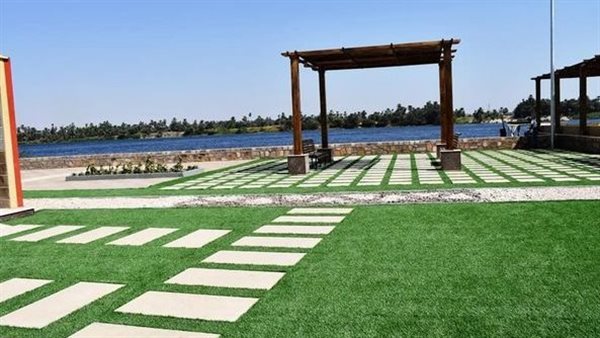Hagar Saeed
In order to accelerate efforts to transition to a green economy, Green Village was launched during the climate change conference (COP27) to rehabilitate villages covered by the presidential rural development initiative Decent Life.
The settlements involved will comply with global environment standards of the World Green Building Council.
Green Village is in three phases to be carried out in 175 villages, with one central village. The governorates, the Decent Life Foundation, the Engineering and Environmental Consultation Company and the Egyptian Green Building Association are taking part in this scheme.
Within the framework of the initiative, the Ministry of Planning and Economic Development issued the ‘Citizen’s Guide to the Green Village’ in an effort to spread the culture of environmental sustainability and raise awareness of the most important practices that have a positive impact on the environment in the Egyptian countryside.
“Under the initiative, some important axes are taken into consideration while developing Egyptian villages: maximising the use of local resources, cutting down on water waste, applying modern irrigation systems, expanding organic agriculture, shifting to environmentally-safe energy sources, and lighting roads and streets with energy-efficient LED lights,” said Mohamed Salah, general supervisor of Decent Life project at the ministry of planning and economic development.
The economic and social plan document for fiscal year 2023-2024 submitted by Minister of Planning Hala el-Saeed and approved by parliament, focuses on the village of Fares as model for the smart green village.
Located in the Kom Ombo in Aswan Governorate, Fares village has a population of 17,000.
The initiative was aimed at implementing the necessary projects in the village to achieve all sustainable development goals, and among the most important projects that were completed were a solar energy station with a capacity of 26 megawatts, a sewage treatment plant with a daily capacity of 3,000 cubic metres, and the development of two water treatment plants with a daily capacity of 11,000 cubic metres.
This comes in addition to raising the efficiency of the lighting network by adding new poles and energy-saving LED lights, planning and providing axes and rehabilitating roads, implementing electricity projects within the village, constructing electricity distributor buildings with a distribution panel inside, creating ambulance points, and building six residential buildings for families in need.
Magdi Allam, head of the Union of Arab Environmental Experts, dscribed the Green Village initiative as a good opportunity to encourage the cultievation of trees in streets, around waste pipes, and at the entrances to fields. He suggested the establishment of a National Authority for Forestation.
“This would help coordinate between the ministries of agriculture, local development and environment to put in place national programmes to expand green spaces around Egypt’s districts and villages to reduce pollution and increase shade,” he told The Egyptian Gazette.
“The government should enforce environmental laws on establishing tree nurseries in districts and villages, and there should be more programmes to raise awareness of tree cultivation in Egypt,’ Allam added.
The Decent Life initiative also includes a programme for producing honey from mangrove forests as a small project for people living near them with the participation of school and university students, Allam noted
“The mangrove project is of immense benefit to the climate as well, because of the role mangroves play in stabilising the environment,” he said.






Discussion about this post